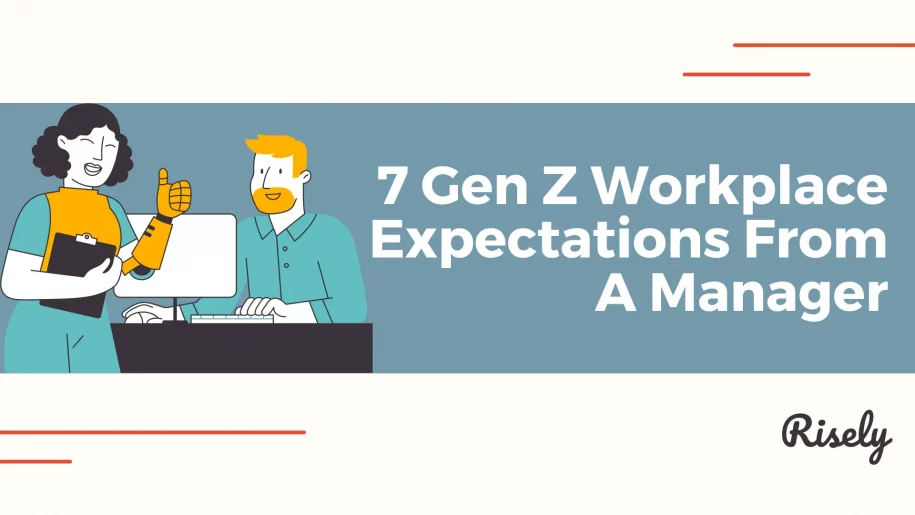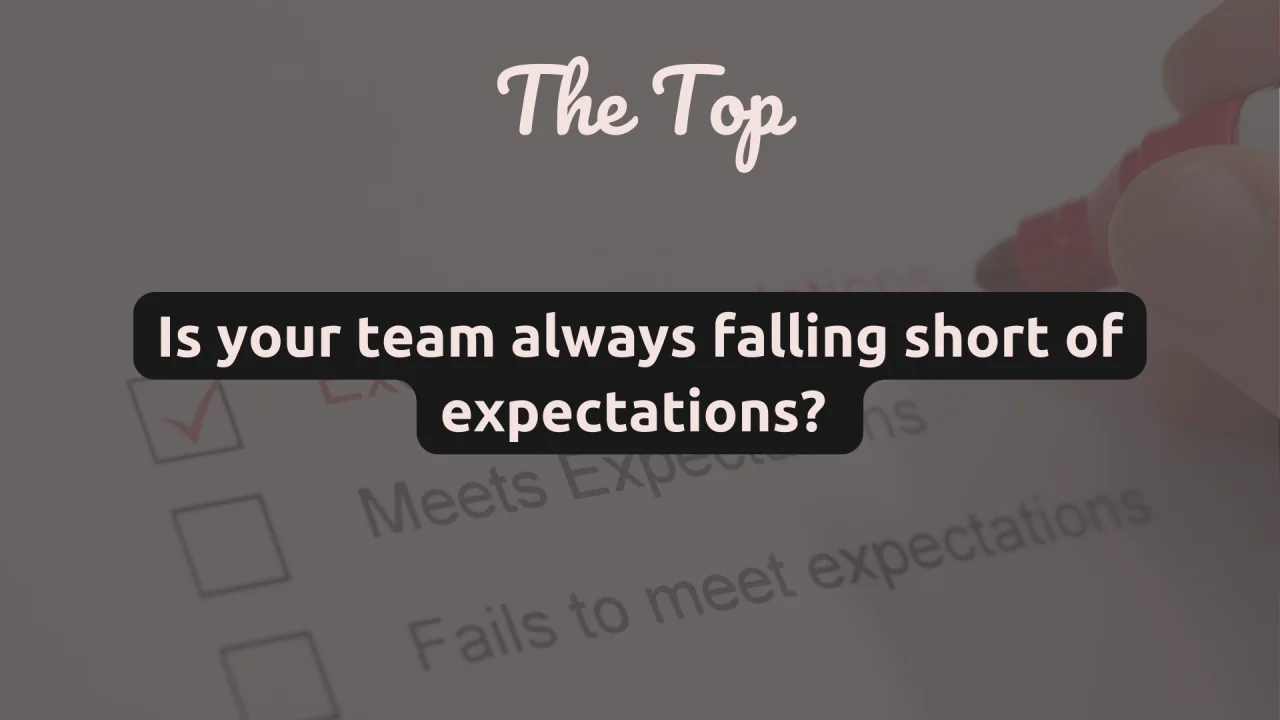7 Gen Z Workplace Expectations From A Manager
More and more members of Generation Z (Gen Z) are entering the workforce every year, and they are already challenging traditional workplace norms. As the most diverse generation to date, Gen Z brings a fresh perspective and a unique set of expectations to the workplace. By 2030, Gen Z is projected to make up a third of the workforce, making it essential for you to understand how to effectively work with this new generation. Gen Z, born between 1997 and 2012, is often called digital natives because they grew up alongside technology. They are the first generation to have constant connectivity and easy access to information through the internet and smartphones. This exposure has shaped their values, including a strong emphasis on work-life balance, a dedication to social issues, and a desire for personal and professional growth. For managers of the yesteryears, this sounds like a lot of trouble, with many of them openly calling out Gen Z employees for breaking traditional norms and hierarchies.Understanding Gen Z: A Manager’s Guide
To effectively manage Gen Z employees, you need to deeply understand this generation’s values and characteristics.Who Makes Up Gen Z?
Gen Z refers to individuals born between 1997 and 2012. They are the youngest generation in the workforce and are known for their unique characteristics and values. Gen Z is the most diverse generation to date, encompassing individuals from different racial, ethnic, and socioeconomic backgrounds. Social and political movements highly influence them and prioritize social issues, mental health, and work-life balance.What Sets Gen Z Apart in the Workplace?
Gen Z brings a fresh perspective and unique characteristics to the workplace. As digital natives, they are highly proficient with technology and have grown up in a connected world. They have a strong entrepreneurial spirit and are driven to succeed. What sets Gen Z apart in the workplace is its focus on social issues and desire for a positive impact. They value inclusivity, diversity, and equality and want to work for organizations that share these values. Gen Z is also more conscious of their mental health and well-being, prioritizing self-care and a healthy work-life balance. Read more: Top 8 Strategies to Boost Employee Retention and other insights7 Key Gen Z Workplace Expectations That You Should Know
To be successful in managing Gen Z employees, managers must understand their expectations and adapt their management styles accordingly. This blog will explore seven critical Gen Z workplace expectations from their managers and provide strategies for effectively engaging and retaining this generation in your workplace.A Strong Emphasis on Work-Life Balance
Work-life balance is a top priority for Gen Z, with as many as 7 out of 10 calling it “very important” in a study by PwC. They value their personal lives and prioritize their well-being outside of work. Gen Z employees are looking for managers who understand and support this need for balance. What can you do about it? Think of flexible work arrangements and remote work options when possible. Gen Z employees appreciate the ability to work from anywhere and control their schedules. This flexibility enables them to manage their personal obligations and responsibilities better while still performing their job effectively. Plus, boundaries matter. Encourage workplace boundaries and lead by example to demonstrate shared values with your team.Transparent and Frequent Communication
Gen Z employees value transparency and frequent communication with their managers. They want to understand their role’s goals and expectations and receive regular performance feedback. Here’s a simple thing that you can start with: prioritize open and honest communication. You can do this through regular team meetings, one-on-one check-ins, and clear expectations and guidelines for projects and tasks. You should also focus on being accessible and approachable, creating a safe space for Gen Z employees to ask questions and seek guidance. Gen Z employees are also comfortable with using technology or communication, so consider leveraging tools such as instant messaging and video conferencing to stay connected and facilitate collaboration.Opportunities for Growth and Development
Gen Z job expectations feature an eagerness to learn and grow in their careers. They value opportunities for professional development and skill advancement. Feedback plays a crucial role in managing Gen Z employees. This generation values continuous growth and development, and they appreciate managers who provide guidance and support. Building a feedback culture within the workplace is essential for engaging and motivating Gen Z employees. You can meet this expectation by providing clear pathways for career progression and offering training, mentorship, and learning opportunities. Gen Z employees appreciate organizations that invest in their employees’ growth and provide resources to continuously develop their skills. So, show them that you care. It’s not just about setting up funds and programs, taking charge, and being an active promoter of employee development. Encourage your employees to take on new challenges and provide constructive feedback and guidance to help them succeed.A Culture That Values Diversity and Inclusion
Gen Z is the most diverse generation and values inclusivity and equality. They want to work in organizations that prioritize diversity and create an inclusive workforce. You should strive to build a culture that values diversity and inclusion. You can do this by actively seeking diverse talent, creating opportunities for employees from different backgrounds to connect and collaborate, and promoting a sense of belonging for all employees. Organizations that value diversity and inclusion are more likely to benefit from unique perspectives and ideas, leading to innovation and success as well as meet gen z workplace expectations.Access to the Latest Technologies and Tools
As digital natives, Gen Z workplace expectations show a strong affinity for technology and expect access to the latest workplace tools and technologies. You can start by ensuring that your teams can access the latest technologies and provide training and support to help Gen Z employees maximize their use. It can include providing access to software, devices, and platforms that streamline processes and enhance productivity. It is also a huge productivity boost and safeguards your team against obsolete practices.Support for Mental Health and Well-being
Mental health is a priority for Gen Z employees. They value organizations prioritizing employee well-being and supporting mental health challenges. But there are not many of them. As per a Deloitte study, 47% of Gen Zs who have taken time off work for mental health reasons have given their employer a different reason for this absence, indicating the presence of stigma. You can meet gen z job expectations by fostering a culture of wellness and promoting healthy habits. It can include offering wellness programs, providing resources for mental health support, and encouraging work-life balance. Moreover, you need to be open and empathetic when it comes to mental health discussions and create a safe space for employees to talk about their challenges and seek support. Read more: How Do Managers Impact Employee Wellness?A Commitment to Social and Environmental Responsibility
Gen Z employees are passionate about social and environmental issues and expect their organizations to commit to social and environmental responsibility. Your team can incorporate social and environmental initiatives into the organization’s mission and values. It can include participating in community service projects, implementing sustainable practices, and advocating for positive social change. You should also communicate the organization’s commitment to social and environmental responsibility to Gen Z employees and provide opportunities for them to get involved and make a difference.Conclusion
In conclusion, understanding and meeting Gen Z workplace expectations is crucial for fostering a positive and productive work environment. Some common misconceptions about Gen Z in the workplace include stereotypes about their work ethic, entitlement, and adaptability. You need to recognize and dispel these misconceptions, as Gen Z employees bring unique strengths such as innovation and adaptability to the table. Aligning with their values, from emphasizing work-life balance to supporting mental health and well-being, leads to increased engagement and retention. You can successfully engage and empower these employees by valuing diversity, embracing innovation, and committing to social responsibility – thus, meeting gen z job expectations. This proactive approach benefits the current workforce and lays a foundation for a sustainable and inclusive future together in your team.Are you actively listening to what your team wants?
Master the art of active listening by reviewing your skills with a free assessment now.
Other Related Blogs
Is your team always falling short of expectations?
Is your team always falling short of expectations? Hey there, manager! If you’ve been here for a while, you’d know that expectation setting is one of the core areas a…
5 Great Expectation Setting Tricks Every Manager Needs
5 Great Expectation Setting Tricks Every Manager Needs As a leader, setting expectations at work is crucial to ensure that your team is aligned toward achieving common goals. But with…
5 Creative Expectation Setting Activity For All Managers
As a manager, it’s essential to set clear expectations with your team to ensure everyone is on the same page and working towards common goals. But setting expectations can be…
Top 10 Tips to Fulfill New Manager Expectations
Top 10 Tips to Fulfill New Manager Expectations Congrats on landing that promotion! You must be buzzing with excitement (and maybe a touch of overwhelm). Let’s face it, managing people…


